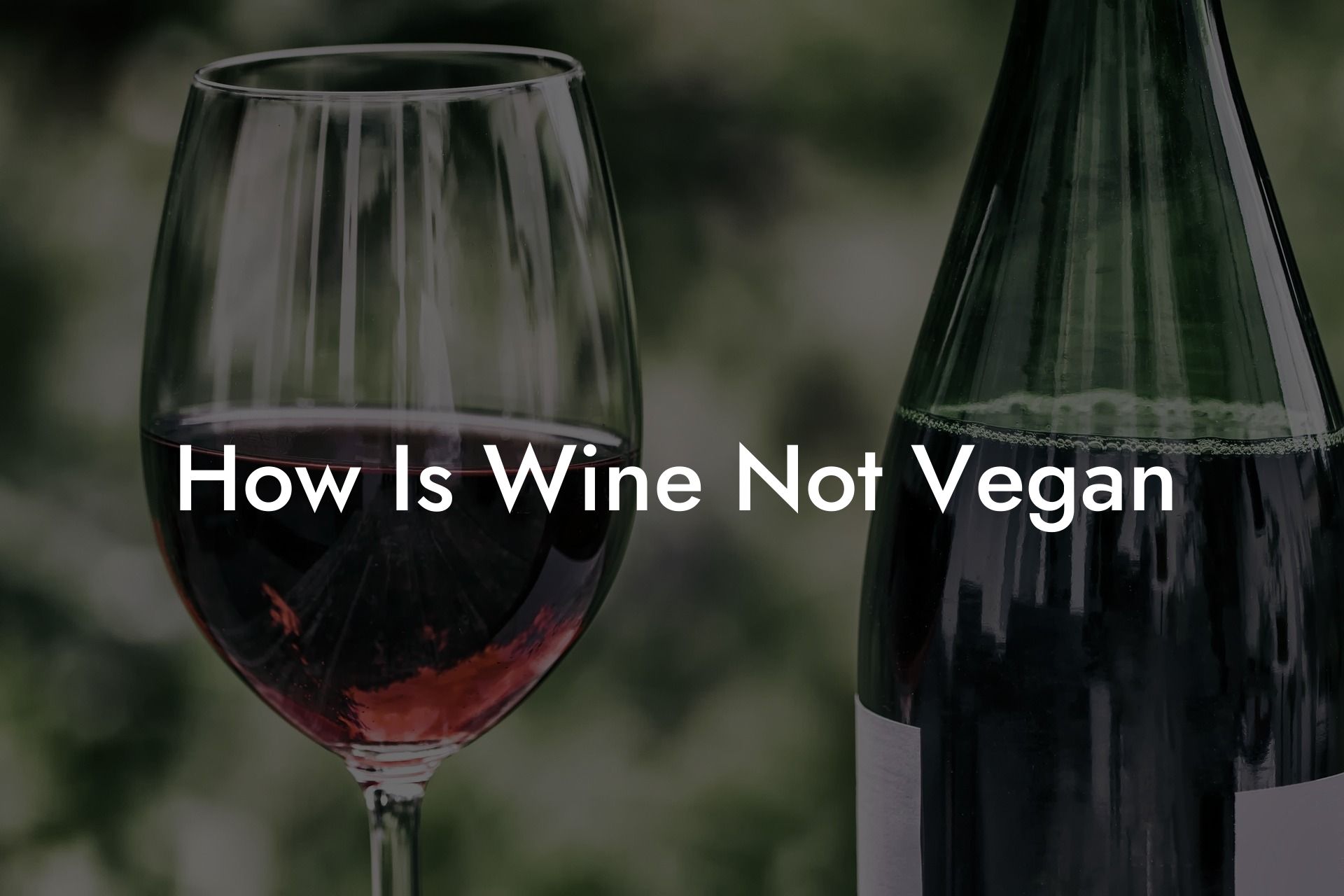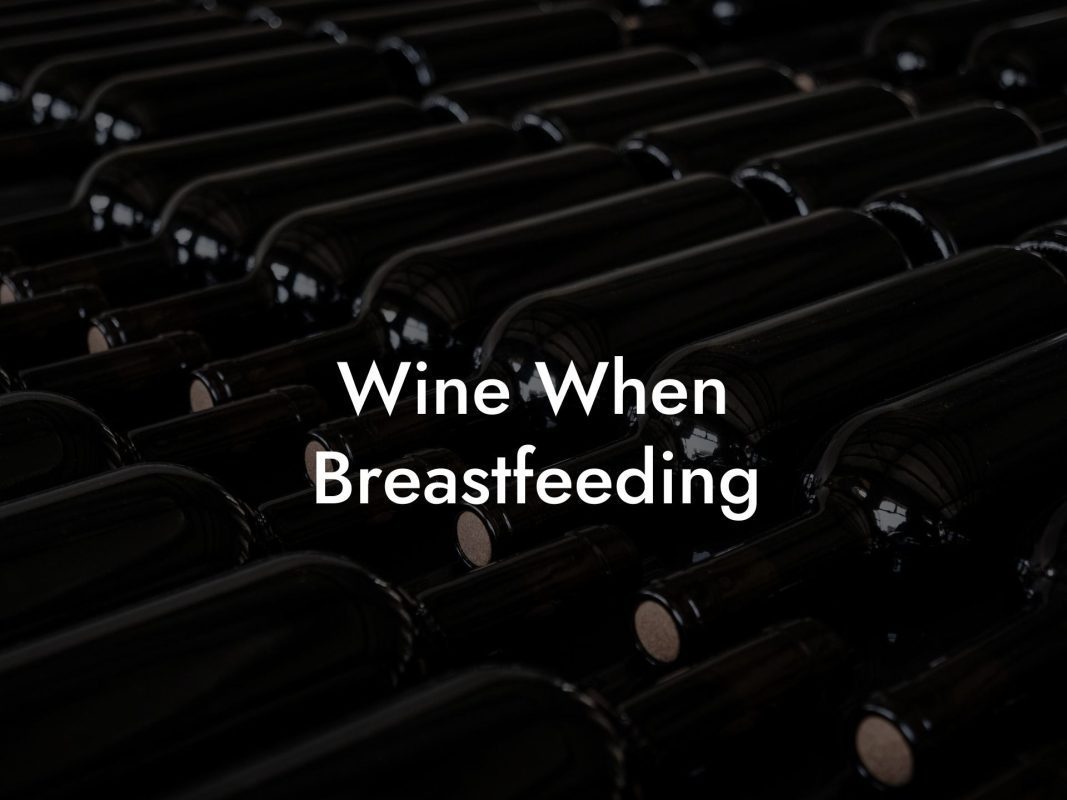Are you a wine lover and a vegan? You might be surprised to learn that not all wine is vegan! In fact, it's a common misconception that all wines are naturally vegan. But don't worry, we've got you covered. In this article, we'll dive into the world of vegan wines and explore how some wines are not considered vegan. So, grab a glass, get comfortable, and let's start our journey into the world of vegan-friendly wines.
How Is Wine Not Vegan Table of Contents
Why Some Wines Are Not Vegan
Wines, in their purest form, are made from fermented grapes, which are naturally both plant-based and vegan. However, the wine-making process involves several steps that can include the use of non-vegan ingredients. These are mainly used during the fining process that most wines undergo.
Understanding the Fining Process
Fining is the process of clarifying wine by removing suspended solids, proteins, and other impurities. It helps enhance the wine's stability, appearance, and taste. Although it's possible to let the wine self-clarify through aging, the fining process speeds up the clarification, allowing winemakers to get their products to market more quickly.
Do You Want to Win a Free Bottle of Wine?
Don't miss out on the opportunity to win a free bottle of wine every week.
Enter our weekly prize draw today!
Animal-derived Fining Agents
Fining agents work by binding to the particles in the wine, forming larger particles that can be easily removed. Winemakers worldwide use various fining agents, and not all of them are vegan. Animal-derived fining agents include:
- Albumin: A protein derived from egg whites, used primarily in red wines.
- Casein: A milk protein, often used in white wines to remove bitterness and reduce astringency.
- Gelatin: Derived from animal collagen, extracted from animal skin, bones, or hooves. It's used in both red and white wines.
- Isinglass: A type of collagen obtained from fish swim bladders, primarily used in white wines and sparkling wines.
These animals-derived fining agents can remain in trace amounts in the final wine, which is why they render it non-vegan.
Vegan Fining Agents and Vegan Wines
Luckily for vegan wine enthusiasts, there are vegan-friendly fining agents that serve the same purpose as their animal-derived counterparts. These include:
- Bentonite: A natural clay made from volcanic ash, often used for fining white wines.
- Activated Charcoal: A byproduct of burning plant materials in a controlled environment, suitable for use in both red and white wines.
- Plant-derived proteins: Fining agents made from wheat, peas, and other plant-based proteins are becoming more popular as wines become increasingly eco-friendly and inclusive.
In addition to using vegan fining agents, some winemakers allow their wines to self-clarify through aging without any fining at all. Wines that use vegan fining agents or undergo no fining process are considered vegan.
How Is Wine Not Vegan Example:
Imagine you're attending a wine tasting event hosted by the Black Wine Club. As you're sampling different wines, you come across a wine labelled as vegan. Upon enquiry, you learn that the winemaker used bentonite, a vegan-friendly fining agent, during the wine-making process. This assures you that no animal-derived products were used, and you can continue enjoying your vegan wine without any concerns.
Now that you know how some wines are not vegan, you can make more informed choices when selecting wines to enjoy and share with your friends. Don't forget to explore other fascinating wine-related guides on the Black Wine Club, where we strive to celebrate wines in all their delicious diversity. And if you find this article helpful, please share it with others who might also find it useful. Cheers to discovering new wines and expanding our knowledge - together!
Do You Want to Win a Free Bottle of Wine?
Don't miss out on the opportunity to win a free bottle of wine every week.
Enter our weekly prize draw today!












